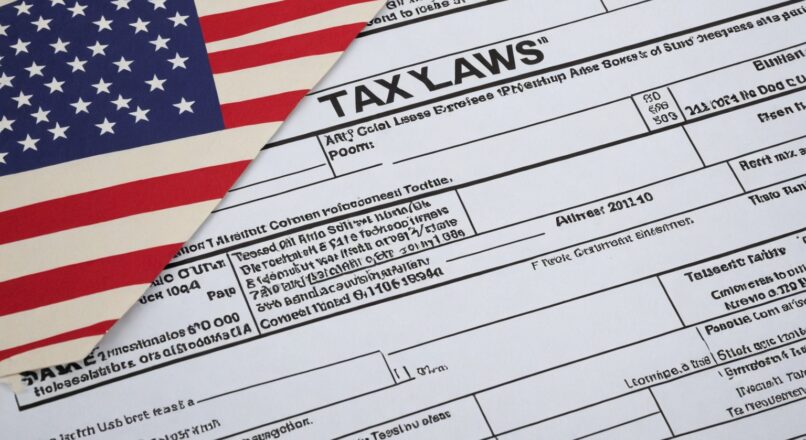
The Basics of Business Taxation in the USA: What You Need to Know”
Navigating the complex landscape of tax laws in the United States is a critical aspect of running a successful business. For entrepreneurs and established businesses alike, understanding tax laws for businesses in the USA is essential to maintain compliance and optimize financial performance. The U.S. tax system is multifaceted, and its regulations can vary depending on the type of business entity, location, and industry.
Types of Business Entities and Their Tax Implications
One of the first steps in understanding tax laws for businesses in the USA is identifying the type of business entity. The most common business structures include sole proprietorships, partnerships, limited liability companies (LLCs), and corporations. Each has distinct tax obligations:
- Sole Proprietorship: As the simplest form of business, a sole proprietorship is owned and operated by one person. The business income is reported on the owner’s personal tax return, and the owner pays self-employment taxes.
- Partnership: In a partnership, two or more individuals share ownership. Each partner reports their share of the income or loss on their personal tax returns. Partnerships must also file an annual information return to report income, deductions, gains, and losses.
- Limited Liability Company (LLC): An LLC offers liability protection to its owners while allowing profits and losses to pass through to their personal tax returns. LLCs can be taxed as a sole proprietorship, partnership, or corporation, depending on the number of members and the election made with the IRS.
- Corporation: A corporation is a separate legal entity from its owners and is subject to corporate income tax. Corporations can be classified as either C-corporations or S-corporations, with the latter allowing income to pass through to shareholders to avoid double taxation.
Federal and State Tax Obligations
Businesses in the USA are required to comply with both federal and state tax laws. At the federal level, the Internal Revenue Service (IRS) oversees the collection of taxes and enforces tax regulations. Businesses must file annual tax returns, pay income taxes, and may be responsible for additional taxes such as employment taxes, excise taxes, and estimated taxes.
State tax obligations vary depending on the location of the business. States may impose income taxes, sales taxes, and franchise taxes, among others. It’s crucial for businesses to understand the specific tax requirements in the states where they operate, as failure to comply can result in penalties and interest.
Deductions and Credits
Understanding tax laws for businesses in the USA also involves knowing the deductions and credits available. Deductions reduce taxable income, while credits directly reduce the amount of tax owed. Common deductions include business expenses such as rent, utilities, payroll, and advertising. Tax credits, such as the Research and Development (R&D) credit or the Work Opportunity Tax Credit (WOTC), provide further opportunities for businesses to lower their tax liability.
Staying Compliant
Compliance with tax laws is a legal obligation and a best practice for maintaining financial health. Businesses should maintain accurate records, meet all filing deadlines, and stay informed about changes in tax regulations. Consulting with a tax professional can also help businesses navigate the complexities of the tax system and ensure that they are taking full advantage of available tax benefits.
In conclusion, understanding tax laws for businesses in the USA is essential for both compliance and financial success. By choosing the right business structure, staying informed about federal and state tax obligations, and maximizing deductions and credits, businesses can effectively manage their tax responsibilities and contribute to their long-term growth and stability.

Leave a reply